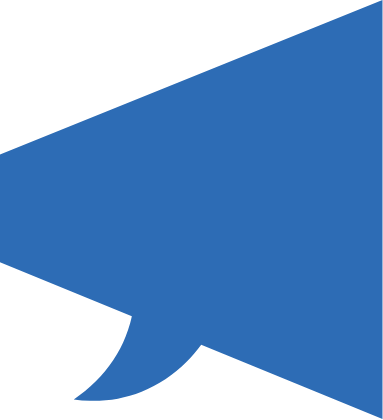Winners of the National Reconciliation Week Draw 2020
3 June 2020
In recognition of National Reconciliation Week 2020, and Reconciliation Day (ACT Public Holiday), ACTCOSS invited ACT community sector workplaces to share a response to the question:
“It has been 20 years since people came together to walk on bridges and roads across Australia to show their support for a more reconciled Australia. Share how your workplace will walk together towards reconciliation.”
The winner of the draw was Karralika Programs. Karralika will receive a collection of Aboriginal and/or Torres Strait Islander resources for their workplace.
The winner of the staff choice prize on how your workplace will work together towards reconciliation was Beryl Women Inc. They will receive anAboriginal fabric tablecloth from Tiwi Design.
Thank you to all 10 organisations who entered with a response. You can read the entries below.
Draw winner: Karralika Programs
On Thur. 28th May we will be screening IN MY BLOOD at our 3 Locations with residents and staff all joining in at one of the venues to watch, shortly after we will hold a discussion on the film and gather feedback. Our aim is to have a cultural program up and running in Karralika by the end of this yr with residents participating in a weekly group. Our aim is to have First Nations people in our programs feeling welcome and connected and most of all thriving to be leaders for there communities when they leave us.
Staff choice winner: Beryl Women Inc.
We work within an Indigenous Perspective as half our team are Aboriginal. We have individual reflections about what reconciliation means, as we are collectively committed to Aboriginal Sovereignty, Closing the Gap, Implementation of the Recommendations of the Royal Commission into Aboriginal Deaths in Custody, Stolen Wages, Recommendations from the Royal Commission into Institutional Sexual Abuse, The Bringing Them Home Report into the Stolen Generation just as a few examples, however we are committed to creating a better service for all Women and their Children to access our service and to receive culturally appropriate responses to their needs. We are committed to The UN conventions relating to the right of Women and Children as well as the rights of Indigenous Peoples and the UN convention of Human Rights. These frameworks help guide and form our professional practice and how we work with our clients.
Domestic Violence Crisis Service
Domestic Violence Crisis Service recognize that Aboriginal and Torres Strait Islander children are at greater risk of exposure to family violence than non-Indigenous children, with two thirds of Aboriginal and Torres Strait Islander adults who experience violence are also sharing the household with children. Domestic Violence Crisis Service recognize that family violence against women, is the leading reason for the disproportionately high numbers of Aboriginal and Torres Strait Islander children removed from their families.
Domestic Violence Crisis Service have a policy that a child protection report should not be made on an Aboriginal family without a team leader review and approval.
Domestic Violence Crisis Service have two Aboriginal crisis workers and two Aboriginal liaison officers.
Domestic Violence Crisis Service have a Reconciliation Action Plan and RAP committee.
Domestic Violence Crisis Service supports workers to attend Aboriginal Cultural Awareness training.
Domestic Violence Crisis Service aims to provide a culturally safe service to all clients.
Domestic Violence Crisis Service office display’s Aboriginal art work and has the Aboriginal and Torres Straight Islander flag flying in the office and on pamphlets.
—
Our office has two Aboriginal Liaison Officers, who help clients who may experience family and domestic violence and who are from indigenous backgrounds, access the supports that they may require in a culturally respectful way. We have a Reconciliation Action Plan, which we strive to incorporate in the way we go about our work. We have a number of beautiful and inspirational paintings with indigenous themes hanging on our meetings walls, which an indigenous artist painted with our staff. We always have an acknowledgement of country read out at the beginning of each and every single meeting. We commemorate important days such as National Sorry Day and National Reconciliation Week. In sum, we support our indigenous brothers and sisters, and we work to ensure that indigenous culture and practices are respected and honoured.
Community Services #1
In February 2020, CS#1’s inaugural Reconciliation Action Plan (RAP) was endorsed. The inaugural Reflect RAP formalises our ongoing commitment to reconciliation and the relationship between the Australian community and Aboriginal and Torres Strait Islander peoples. It marks an important step in our reconciliation journey.
CS#1’s journey started some time ago and was well-intentioned but unstructured. Reconciliation activities often centred around NAIDOC week and were not a regular or routine part of the work environment. Even so, our children and educators at our early education centres have always participated in reconciliation activities that have contributed to their understanding from an early age about Aboriginal and Torres Strait Islander cultures and people, including a daily Acknowledgement of Country that is age appropriate. Visits from indigenous performance groups taught them about aboriginal culture through story, art, performance and dance. CS#1 has also proudly held a public art exhibition each year to support Aboriginal and Torres Strait Islander inmates of the Alexander Maconochie Centre to showcase their art in our Gallery. Our Reflect RAP aims to build on these existing initiatives and deepen our understanding.
CS#1’s Reflet RAP was to be officially launched in March 2020, however, due to COVID-19 plans to gather and start the formal RAP journey together changed. Instead, small steps are being taken, and added together these steps will actively contribute to our reconciliation journey.
Each CS#1 site now flies the Aboriginal and Torres Strait Islander flags and staff are educated about the purpose, significance and cultural protocols behind each flag. Acknowledgement of Country is now routinely used by staff in both verbal and non-verbal communication and they understand the purpose and significance behind this cultural protocol.
Our RAP Champion and members of our RAP Working Group are excited to lead CS#1 to dedicate time and resources to improve reconciliation relationships, actions and opportunities across the organisation. Every part helps to create a community that is inclusive and respectful of each other.
Capital Health Network – ACT PHN
Capital Health Network (CHN) will continue walking together towards reconciliation during this significant week #NRW2020 and beyond. CHN is committed to the health and wellbeing of Aboriginal and Torres Strait Islander people by being #InThisTogether. We will be sharing information, videos and resources with staff each day and hosting a screening of ‘In My Blood It Runs’ followed by a live Q&A session. Below is how our workplace will walk together towards reconciliation (beginning of each sentence spells out our orgnaisation)
Co designed Cultural Competency Framework (CCF) with Coolamon Advisors.
Acknowledgement of Country at all events and digital material.
Planning and shared decision making with the local Aboriginal and Torres Strait Islander for our programs.
In My Blood It Runs -film screening during #NRW2020.
Together with Aboriginal and Torres Strait Islander people is our journey for reconciliation.
Anniversary of the first Sorry walk in 2000 which had 250,000 people in attendance.
Learning more about culture – biannual cultural awareness training for all staff, commissioned services, and primary health care providers.
Health – improving Social and Emotional Wellbeing outcomes for Indigenous people
Education visits to primary health care services to facilitate culturally appropriate care for Aboriginal and Torres Strait Islander people.
Awareness – sharing information, resources and good news stories about Indigenous health and wellbeing regularly with staff and stakeholders.
Leadership – CHN strives to be a leader in improving health outcomes for Aboriginal and Torres Strait Islander people in the ACT.
Transparency -distributing our CCF within the local Indigenous community.
Hope for a united Australia that respects this land, values the Aboriginal and Torres Strait Islander heritage, and provides justice and equity for all.
Needs assessment identifies local priorities to inform and guide CHN activities.
Equity – seeking and supporting access to culturally appropriate health care.
Traditional Owners Aboriginal Corporation (TOAC) – walk on Country Tour attended by CHN staff members.
Walk together with a shared purpose and build a stronger future for all Australians.
Our History, Our Story, Our Future video developed by Reconciliation Australia shared with all CHN staff.
Refresh of the Closing the Gap framework and targets to work collaboratively and in genuine, formal partnership with Aboriginal and Torres Strait Islander peoples as they are the essential agents of change.
Knowledge – always seeking deeper understanding, input, and feedback from the local Aboriginal and Torres Strait Islander community about culture, how it should inform our policies, procedures and programs and how we can improve.
Arthritis ACT
As the Exercise Programs Coordinator at Arthritis ACT, I’m currently organizing a compulsory Cultural Awareness In-service on Indigenous Australians for our workplace. We are a not-for profit health organisation consisting of a wonderful team of allied health professionals (Exercise Physiologists, Physiotherapists, Dietitian, OT). I think the least we could do for Reconciliation Week is to learn and become aware of some of the unique issues still faced by our First Nations Peoples. The in-service will introduce some of the cultural awareness issues that we, as clinicians living on stolen land, should be aware of. I’ve personally had a lot of experience working with Aboriginal and Torres Strait Islander Peoples when I was on clinical placement in Broken Hill last year. I would like to share my experiences, the knowledge, education and cultural training that was taught to me so that we can work towards helping to bridge one of the many gaps in healthcare that our First Nations People experience.
Burrunju Aborigial Corporation
It’s important that we don’t forget the “walk across Sydney Harbour bridge” and the thousands of people that were there that day and later the “Sea of Hands” outside parliament house showing how many Australians want to help in this journey.
Especially in today’s political scene from America and the LA riots that followed with the death of a black man by LA Police. Burrunju Art Gallery will promote Reconciliation through the medium of art.
We as Aboriginal and Torres Strait Islander people recognise that racism exists in this country and we need to educate the non-Indigenous people what happened with the arrival of Captain Cook claiming this land for England and not acknowledging that the people living on the land had their cultural values and laws and languages.
With the policies that evolved in the early 1920’s by the invaders taking our land resulting in the Government settling displaced people on reserves and taking the children from families which led to the breakdown of families and communities.
Until today’s non-indigenous generation can acknowledge the past of what their ancestors did, then there is still resentment towards government and the police by our Indigenous younger generation.
We still have a long way to go towards Reconciliation.
Carers ACT
Carers ACT hired 2 Aboriginal workers to help with Aboriginal Carers and Community to connect and reconcile.
Our CEO Made the positions without government funding as she knows there is a need for our Aboriginal Carers.
Our CEO shows great passion and understanding and connection and makes sure us as Aboriginal workers has the right support during Sorry business and special events that is specified for Aboriginal people.
The encouragement from Carers ACT to attend these events is very important to our organisation and we as front line workers are there to represent what there values are.
We also attend Naidoc balls and we are looking at sponsoring a naidoc award this is in the process at the moment and this was suggested from our CEO and Board to show more of an involvement and support for the Aboriginal Community.
Carers ACT does not make a discussion on any Aboriginal agenda without consulting us first for approval.
Carers ACT also has put aside funding for Aboriginal Carers from Shaw building funding to make sure that we are committed to support in different ways and as we know our culture is very different to others and need specific things that may not be available under the guidelines.
We have Aunt Agnes to do our Welcome to Country when we have events.
We also had Tina Brown do welcome to country and we have reconciliation brunch once a year with entertainment ,food and celebrate coming together.
Carers ACT CEO has also been to the nannies group to connect with our women elders and also Ngunnawal elders council to show that we can assist and we will stick by our word.
I also run an Aboriginal Carers art group once a fortnight and put on lunch and to help us gather share stories and help with our family lines and this is funded by Carers ACT not Aboriginal funding.
I really enjoy my job and it is rewarding with such a great supportive work places that encourages to be our selves and embrace our Aboriginality.
We have sent out care packages to those who are in need and was also purchasing IT items to stay online and in touch with family members during COVID and calls to check ins as well with our Aboriginal Elders to make sure they are OK during this time.
we have a notice board where workers put on paragraph of what reconciliation means to them.
We celebrate, we mourn and we come together that is what we do at Carers ACT.
We have a RAP but moving forward we have worked on Aboriginal Empowerment Strategy to improve our RAP.
Woden Community Service
Woden Community Service (WCS) is deeply committed to reconciliation. We acknowledge the hurt, dislocation and disadvantage experienced by First Nations peoples as a result of colonisation. This is not just historical, but current, and requiring a response from the whole community. WCS seeks to walk with First Nations peoples and find new ways to build a more reconciled Australia.
It is 10 years since WCS launched its first Reconciliation Action Plan (RAP). This was the start of our journey and understanding. We have come some way to achieving the visions from that first RAP, and now understand much more about how much effort these steps towards reconciliation require. As we draft our fourth RAP, we are even more determined to make a difference.
Reconciliation Week 2020 posed challenges with the restrictions around COVID-19. We could not gather together as before, so we moved to an online forum and embraced the opportunities that provided. Staff from all over the organisation participated, live or watching the recording, extending the reach. We were able to have two great speakers, with Karen Mundine, CEO of Reconciliation Australia, joining us from Sydney and Ngunnawal Elder Uncle Fred Monaghan in Canberra. Drawing on this experience, we are looking forward to working with our sector colleagues in July this year to host an online community NAIDOC celebration.
Reflecting on the meaning of the Reconciliation Week theme ‘In This Together’ in the context of COVID-19, Karen talked about how the pandemic has exposed the inherent inequalities for First Nations peoples – existing disadvantage in housing and health leads directly to higher risk. However, she also talked about how the response to COVID-19 presents an opportunity to rethink our lives and humanity, reimagining a community with fairness and justice. Karen challenged WCS to continue to seek innovative ways to build relationships and empower First Nations peoples. Uncle Fred spoke about his life and experience, particularly focussing on the challenges for First Nations youth and the importance of providing opportunities.
As we refresh our RAP again, we will draw on those powerful messages to imagine a new future and drive justice forward. We are excited about creating and launching a RAP that genuinely makes a difference, knowing that we can contribute to reconciliation both through the services we provide, and in how we work together with First Nations peoples.





